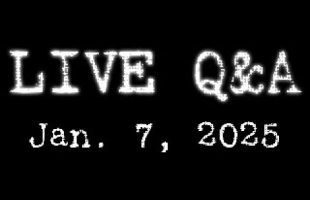Welcome brothers and sisters!
This is a recording of chapter 8 in volume 17 of Carl Jung’s collected works: “Marriage as a psychological relationship”. Jung approaches marriage not merely as a legal or social institution, but as a complex interplay of conscious and unconscious forces that shape the relationship between partners. He begins by highlighting that a true psychological relationship can only exist between individuals who have developed a sufficient level of consciousness, and that many marital dynamics are clouded by large areas of unconsciousness, stemming from unresolved personal and collective influences.
Jung discusses how the development of ego-consciousness allows individuals to establish relationships, but cautions that many young people enter into marriage with incomplete understanding of themselves and others. He argues that unconscious factors—especially those inherited from parental relationships—often drive individuals to seek out partners that fulfill unmet needs or compensate for what was unresolved in their parents’ lives. This unconscious influence may lead to choices that are less about personal happiness and more about fulfilling biological or inherited psychological patterns.
As marriage progresses, Jung posits that the relationship often evolves from a state of unconscious unity, where partners project their idealized images (anima/animus) onto one another, to a more conscious relationship, filled with inevitable conflicts and crises. These conflicts, according to Jung, are necessary for psychological growth and individuation, as they force individuals to confront their own unconscious contents and move toward a deeper understanding of themselves and their partner.
Jung also introduces the concept of the “contained” and the “container” dynamic in marriage, where one partner’s more complex, multifaceted personality often overwhelms the simpler nature of the other. This dynamic, Jung explains, can lead to feelings of disunity and alienation, particularly as partners enter the second half of life. It is during this period, Jung notes, that individuals are called to transform their instinctual, biologically-driven relationships into something more spiritual and meaningful. However, this transformation is fraught with difficulty, as many marriages become trapped in the unconscious patterns established in the early stages of life.
The work also touches upon Jung’s concept of the anima and animus—unconscious archetypal images of the opposite gender that heavily influence romantic and marital relationships. Jung explains how the projection of these images onto one’s partner can create a powerful but illusory bond, which must eventually be broken if the marriage is to evolve into a true psychological relationship based on individuality rather than projection.
Jung’s assertion is that the crises and conflicts that arise in marriage are not to be avoided or suppressed, but embraced as opportunities for personal and relational growth. The transition from unconscious unity to conscious individuation is not easy, but it is essential for the psychological maturity of both partners.
Through Jung’s lens, we come to see marriage as not just a union of two individuals, but as a dynamic and evolving process that mirrors the psychological development of the self.
This work offers valuable insights for anyone interested in understanding the deeper psychological forces at play in intimate relationships.
I strive to mediate the profound light that Jung himself brought forth through his work and life. It is part of my life’s purpose. In many ways, we modern humans have lost touch with the core of our being—our psyche, our soul. Jung guides us back to that source in a way uniquely suited to our modern consciousness. Through his teachings, I have found the most meaningful path toward realizing my own potential for wholeness, joy, maturity, and creativity.
Jung mapped the inner world with remarkable clarity, revealing where our psyche and civilization stand and what is necessary for our individual and collective growth. With his guidance, I hope we can keep our inner flames burning in the midst of the darkness that surrounds and inhabits us, thus promoting in our world and selves – health, courage, and reflection.
If you’d like to support my efforts, consider clicking the ‘Thanks’ button under the videos—it helps me dedicate more time to this channel.
Thank you!
#CarlJung #JungianPsychology #MarriagePsychology #AnimaAndAnimus #PsychologicalGrowth #Consciousness #Individuation #SelfRealization #RelationshipDynamics #UnconsciousMind #PersonalGrowth #MarriageTransformation #PsychologyOfLove #HumanRelationships #PsychologicalDevelopment #DepthPsychology #SpiritualGrowth #JungianTheory #Archetypes #EgoConsciousness


